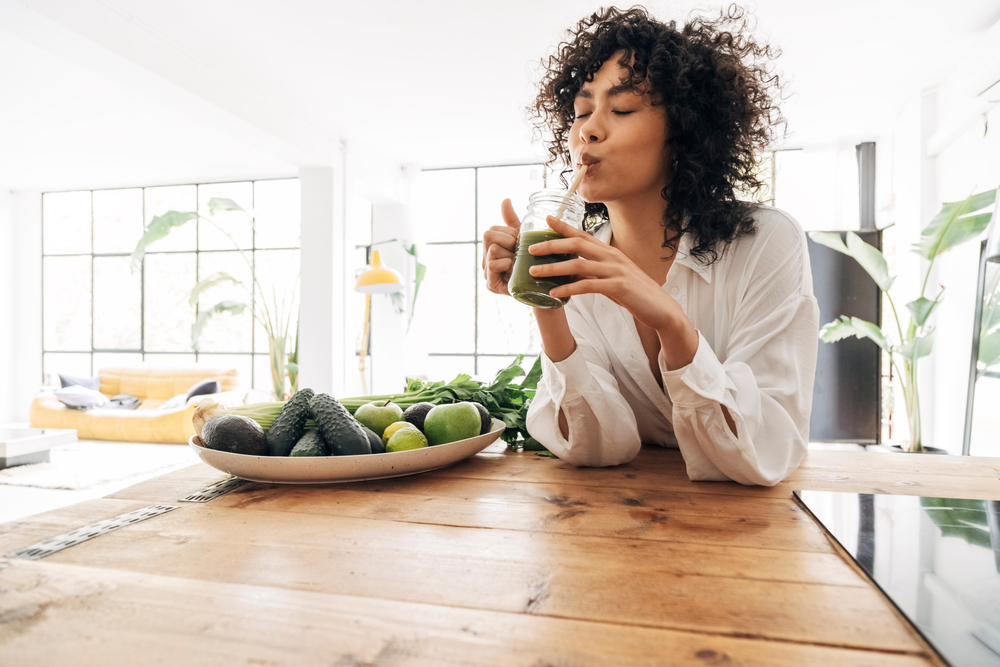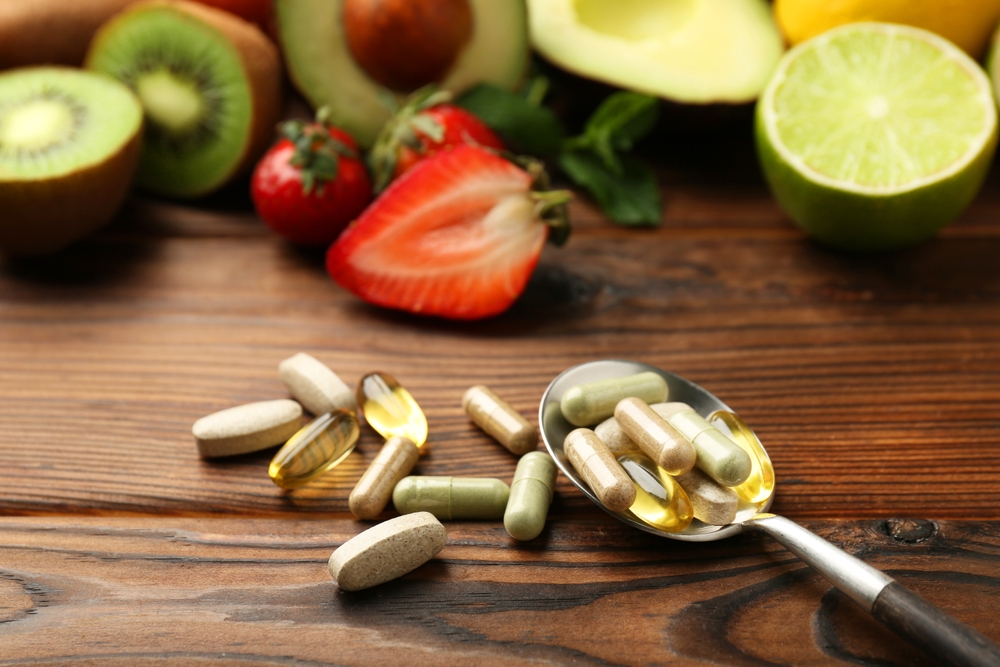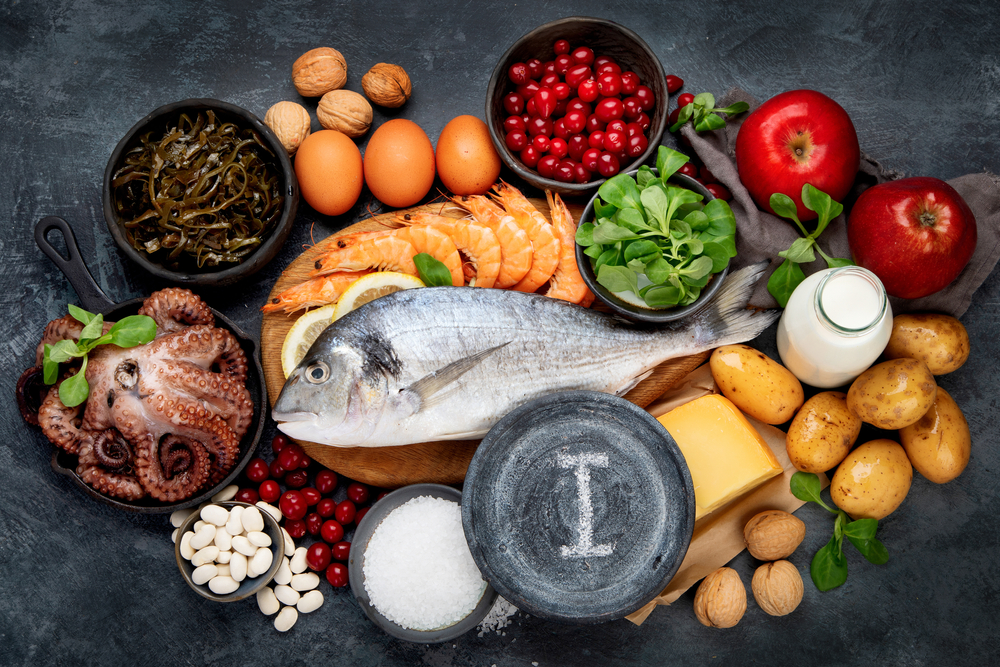If, as some academics seem to expect, a multivitamin and multimineral supplement helped to lower mortality risk, cure diabetes, prevent heart disease and cancer, boost bone health and improve cognitive function, doctors would soon be out of a job.
Yet these are examples where nutrient supplements have been criticised for supposedly failing to do the work of medicines and lifestyle change.
It completely misses the point.
Dietary supplements are nutrients conveniently packaged in a capsule, gummy or powder form so we can take them with a meal. Topping up with vitamins, minerals or fish oils in supplement form helps us to meet recommended dietary targets where many of us aren’t meeting these through our current diets. Supplements are not medicines, neither do they provide therapeutic doses. For these – for example a high dose iron or B12 supplement to cure anaemia – a visit to our doctor is still required.

We need to manage our expectations when it comes to dietary supplements but that doesn’t mean they are a waste of time or money. Dr Carrie Ruxton, a dietitian at the Health and Food Supplements Information Service, says: “Theoretically we should be able to get the nutrients we need from a healthy balanced diet. But the fact remains that too few people are actually eating the ideal diet of wholegrains, beans, pulses, fish, fruit, vegetables and lean meat.
This has led to many of us missing out on key nutrients. Having a nutrient gap won’t change our health today or tomorrow but, over time, the effects stack up. That’s why it’s important for people of all ages to reflect on their current diets and consider whether they could benefit from a vitamin and mineral supplement”.
But which Vitamins do you need and what purpose do they serve?
Here, we look at the key nutrients lacking in the UK diet:
Vitamin A – needed for eye health, normal skin health and children’s growth. Good sources include red/orange/yellow fruits and vegetables, dairy foods, meat and oily fish. The National Diet and Nutrition Survey[1] reports that almost a fifth of teenagers and one in ten adults doesn’t get enough vitamin A in the diet.
Vitamin D – needed for normal bone health and immunity. Depending on the time of year, up to four out of ten British adults and around a third of teenagers are clinically deficient1. More than 90% of our vitamin D should come from exposing our skin to summer sunshine but the UK weather is too inconsistent for this. Apart from oily fish and eggs, there are few natural dietary sources to rely on year-round.

Dr Ruxton says: “Studies show that bone conditions, such as childhood rickets, are now more prevalent and osteoporosis (bone fragility) affects 3.5 million adults in the UK[2]. The Government recommends that everyone should be taking a daily vitamin D supplement in winter and spring[3]. While the recommended dose is 10 micrograms, it’s safe for people aged over 11 years to take up to 100 micrograms daily.[4]”
Folic acid – needed during pregnancy to support normal foetal development and during later life to slow cognitive decline. Pregnant women have always been advised to take 400 micrograms of folic acid daily (twice the general recommendation) to prevent a debilitating condition, called spina bifida, which affects thousands of foetuses each year[5]. Government surveys reveal that 90% of women are deficient in folate during their child-bearing years, putting babies at risk of life-long disability[6]. Dietary sources of folate include liver, green leafy vegetables and fortified breakfast cereals.
Vitamin B12 – needed for the nervous system and cognitive function. Most children and adults get enough vitamin B12 from the diet, as long as they’re eating a variety of animal-based foods, such as meat, poultry, fish and eggs. However, the rise in popularity of plant-based diets has put thousands of people at risk of low intakes. Vegans are advised to take a B12 supplement or use nutritional yeast and fortified foods.
Dr Ruxton says: “Symptoms like extreme tiredness, pins and needles or a sore red tongue could indicate vitamin B12 deficiency. Elderly people need more vitamin B12 as they absorb less in the gut. People aged over 50 could consider supplementing with vitamin B complex, particularly if they don’t eat meat or fish regularly.”

Other B vitamins – needed for normal hair, nails, energy release and hormone regulation. Vitamins B1, B2, B6 and biotin all have vital roles in the body, but you should be getting enough if you are eating a balanced, varied diet. Key sources are meat, fish, eggs, beans and dairy foods. Women can benefit from additional vitamin B6 if they are experiencing symptoms around the menstrual cycle or menopause. Extra biotin can also support hair and nail growth.
Vitamin C – an antioxidant needed for immune function and wound healing. Everyone who is eating the recommended 5-a-day fruit and vegetables will be getting enough vitamin C. The trouble is that a quarter of UK adults and nine out of ten children are nowhere near this intake, according to the National Diet and Nutrition Survey1.
Dr Ruxton adds: “While the recommended vitamin C intake is 80mg, higher intakes of 500-1000mg for 7-10 days are needed at certain times of the year to reduce the duration of colds[7]. This level of intake is almost impossible to get from the diet, so a supplement is a useful way to top up, particularly one that includes immune-supporting zinc”.
Calcium – needed for bone and tooth health. Key sources are dairy products, nuts, seeds and green leafy vegetables. However, the popularity of plant milks has led to many women and girls giving up dairy which put their bone health at risk. Surveys show that one in ten women and a quarter of teenage girls in the UK don’t get enough calcium1.
Encouraging calcium sources from an early age helps children and young people to lay down bone density during the crucial window of bone development. If this isn’t possible, for example due to dislike of dairy foods or a vegan diet, it’s important to offer a calcium supplement combined with vitamin D. This is because the two nutrients work together to ensure normal bone growth[8].
Magnesium – needed for normal nervous function, mood and bone structure. High fibre foods like legumes, nuts, seeds, and whole grains are all high in magnesium, as well as spinach. But these aren’t popular with many people which explains why four in 10 teenagers and one in ten adults are very low in magnesium1.

While magnesium is best known for its role in bone structure, studies suggest that it can also improve mood and lower stress when taken as a supplement[9].
Iron – needed for red blood cells, cognitive function and preventing tiredness and fatigue. The richest sources are liver and red meat which have become less popular over the past decade. Menstruating females need a third more iron than males which is why half of teenage girls and a third of women have low iron intakes, risking deficiency1.
Dr Ruxton notes further: “Symptoms include tiredness, getting out of breath easily, and brain fog. Boys and men generally get enough iron from their diets as they eat more red meat. Girls and younger women should consider a mineral supplement, especially if they have heavy periods or follow plant-based diets”.
Iodine – needed for thyroid hormones, skin health, normal growth in childhood and development of the infant brain. Iodine deficiency, once common in parts of the UK, is rare thanks to the use of iodine in dairy production[10]. But this could change if plant milks – which are naturally low in iodine – start to replace cows’ milk. Recent surveys have found that around a fifth of younger women in the UK have low blood levels of iodine[11].
Selenium – an antioxidant which supports immune function. Plants are the main source of selenium in the diet, but their content depends on soil levels of selenium which are known to be depleted in the UK[12].
According to the National Diet and Nutrition Survey1, a quarter of males and half of females have diets which are too low in selenium, however, clinical deficiency is still rare. Dr Ruxton says: “Selenium is difficult to get in the diet, but Brazil nuts are a reliable source – we need just 3-4 daily to meet the recommendation. Selenium is also present in multivitamin and multimineral supplements”.

Zinc – needed for immune function and normal fertility. Zinc is mostly found in animal foods so can be another nutrient of concern when people switch to plant-based diets. Vegan sources are wholegrains, tempeh, tofu, quinoa and pumpkin seeds.
Dr Ruxton adds further: “Up to a fifth of Brits, particularly teenagers, don’t get enough zinc in their diets1 and this isn’t helped by the trend towards nutrient-poor ultra-processed foods. Since teenagers’ diets often lack several minerals, including zinc, magnesium, iron and iodine, it’s worth giving them a daily multimineral supplement”.
Omega-3 fats – needed for heart health, brain and eye development. These fats found in foods of marine origin are important for regulating our body’s inflammatory response, but intakes remain far too low as just one third of the UK population eats any oily fish1 – the main dietary source. Worse still, the next generation seems to be heading for fish avoidance with British teenagers eating just eight servings a year instead of the recommended one a week1.
Dr Ruxton continues: “Oily fish intakes are far too low which means most of us are missing out on the importance nutrients it provides. A fish oil or omega-3 supplement provides a simple, acceptable means to bridge the gap when people can’t or won’t eat a weekly serving of salmon, mackerel or tuna”.
Last word
Our modern lives – busy and frenetic topped up with fast-food deliveries to our door and food on the go – are failing us when it comes to vitamins, minerals and omega-3 fats. While it’s unreasonable to expect our dietary supplements to prevent or cure serious diseases, like cancer or heart disease, they can do a very important job – help us to get the nutrients we need to fuel our body’s needs daily. Dr Ruxton concludes: “An A-Z multivitamin and multimineral supplement is a simple, cost-effective way to bridge the gap between our imperfect diets and evidence-based recommendations.”





